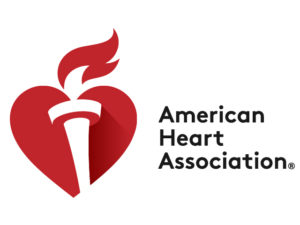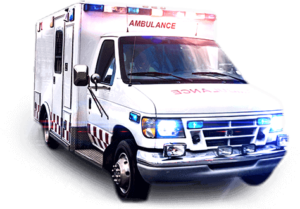Featured: American Heart Association
AHA launches awareness campaign to urge the public to call 911 for emergencies and reassure Americans how the hospital is a safe place during the pandemic

Hospitals across the nation have reported dramatic drops in the number of emergency department visits amid the COVID-19 pandemic. But, medical emergencies such as heart attacks, strokes and cardiac arrests don’t stop during a pandemic.
Reports show emergency department visits have declined by 40% to 50% nationwide. Data shows that 9-1-1 calls are down 29%, while STEMI/chest pain calls are down 31%, according to ESO. Stroke calls are down 21%.
Emergency room physician, Dr. Michael Kurz, has observed this alarming trend firsthand. Dr. Kurz, who is past chair of the American Heart Association (AHA) Emergency Cardiovascular Care subcommittee on Systems of Care, said he has seen a significant reduction in both citizens calling 911 for emergency services and emergency department volumes.
“And now what we are seeing is almost a second surge, not of COVID patients, but what we’re now seeing is the surge of folks with chronic disease who have waited much past when they normally would to access health care or call 911,” he said in an AHA video interview. “And so, the acuity in the non-COVID patients has risen dramatically.”
With many fearful of calling 9-1-1 or going to a hospital during the pandemic, there is a critical need to reassure all Americans if symptoms of a heart attack or stroke appear, seconds count and the hospital is still the safest place to be.


In response to data that shows decreases in 9-1-1 calls and ER visits, the AHA launched a public awareness campaign, “Don’t Die of Doubt.” The campaign reminds the public not to doubt heart attack or stroke symptoms and seek emergency medical care by calling 9-1-1 or going to the hospital should they appear.
Most heart attacks do not lead to cardiac arrest, according to the AHA. But when cardiac arrest occurs, heart attack is a common cause.
With many Americans continuing to spend more time at home during the pandemic, the odds of cardiac arrests in a home setting are likely to rise, according to the AHA. Now more than ever, it’s important for the public to know the signs of a cardiac arrest and get trained in CPR.
Over 350,000 out-of-hospital cardiac arrests occur in the U.S. each year, with about 70% happening in homes. Fortunately, Hands-Only CPR can be performed by family or household members. During a pandemic, household members may be the lowest risk providers of CPR at home because they have likely already been exposed if in fact the cardiac arrest victim has COVID-19.
Bystanders may be concerned about the risk of becoming infected with COVID-19 during CPR. But an analysis of Seattle emergency medical services and hospital data from January 1 to April 15, 2020 shows a low risk of COVID-19 infection from bystander CPR, according to an article published in AHA’s flagship journal Circulation.
With COVID-19 infections continually increasing across the globe, the percentage of cardiac arrests with COVID-19 are also likely to increase. But COVID-19 cases pose challenges around resuscitation efforts.
To address this issue, the AHA published a scientific statement that provides interim CPR guidance to help rescuers safely and effectively treat cardiac arrest patients with suspected or confirmed COVID-19 for both in-hospital and out-of-hospital settings. The goal is to ensure that patients with or without COVID-19 who experience cardiac arrest have the best possible chance of survival without compromising the safety of rescuers.
AHA is also helping healthcare providers stay up to date on their CPR skills and knowledge by offering blended learning options, which enables them to learn and refresh their resuscitation skills while maintaining physical safeguards for health.
Healthcare providers can also gain insights from other medical professionals who are on the front lines of the pandemic by listening to the AHA Emergency Cardiovascular Care (ECC) Podcast series. Recent podcasts have covered the COVID-19 impact on an Italian ICU and updates from King County and Seattle EMS.
During this uncertain time, the AHA is working tirelessly to reduce the impact of COVID-19 in communities across the country. The AHA is also working to ensure healthcare systems and providers on the frontlines of the pandemic have the training and resources they need.

To learn more about AHA’s COVID-19-related efforts and listen to the ECC podcasts, visit COVID-19 Resources for CPR Training and Resuscitation webpage.